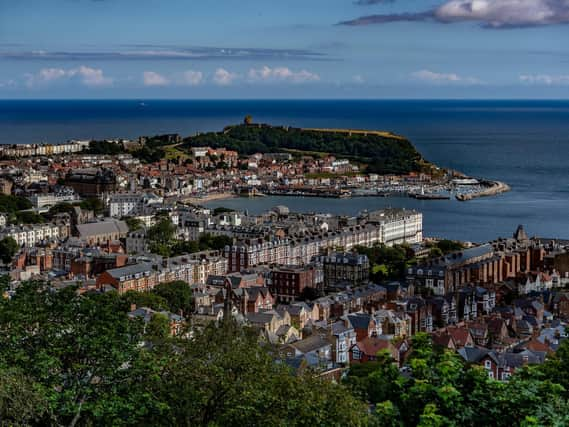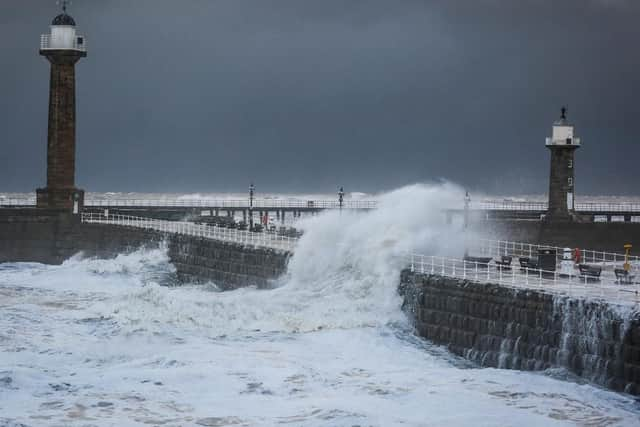Government must 'wake up' to widening economic woe of coastal communities, Yorkshire leaders warn


Political and business leaders in Yorkshire have backed the findings of a new think-tank report which calls for “a special package of help” to be put in place to address a "widening gap" between coastal areas and the rest of the UK economy.
The Government defended its record and said more than £200m will be spent in coastal communities by 2020, but new research by the Social Market Foundation portrays a bleak picture.
Advertisement
Hide AdAdvertisement
Hide Ad

More than 30 coastal areas still have economies smaller than before the financial crisis that began in 2007 with many seaside towns having missed out on much of the economic growth that the rest of Britain has seen since, the Foundation found.
The GVA, a measure of economic productivity, of East Yorkshire fell by four per cent between 2007 and 2017, and by 2.4 per cent in Scarborough. In neighbouring areas, the GVA of Redcar and Cleveland fell by 12.8 per cent in the same period, and in North East Lincolnshire by 4.2 per cent.
Overall, workers in seaside towns now earn almost £5,000 less than those elsewhere in the country and saw average wages drop between 2017 and 2018, to £25,906, compared to a rise elsewhere to £30,592.
People in coastal areas also have a lower life expectancy.
Advertisement
Hide AdAdvertisement
Hide AdScott Corfe, the Foundation’s research director, said: “Prime Minister Boris Johnson has said he wants to help ‘forgotten’ parts of the country. Coastal areas where incomes and lifespans are falling certainly fit that description.
“In the context of the Brexit debate, it’s notable that most of those areas voted in favour of leaving the European Union.”
Advertisement
Hide AdAdvertisement
Hide AdA new radical and localised approach is needed to change the fortunes of coastal communities, despite the “incredibly hard work” being undertaken by local people from the business, education and voluntary sectors, said David Kerfoot, who chairs the York, North Yorkshire and East Riding Local Enterprise Partnership.
“The coast has some huge and deeply entrenched issues that these people can’t be asked to deal with and government needs to wake up to them.”
He said recent multi-million pound ‘Opportunity Area’ funding, over three years, would only “scratch the surface” of long-term deprivation.
Undermined by budget cuts
The leader of Scarborough Council, Labour councillor Steve Siddons, said a dearth of high quality, better paid jobs was one of the major problems holding coastal communities back as he called for fundamental changes to funding and local governance.
Advertisement
Hide AdAdvertisement
Hide AdBemoaning budget cuts, he said: “We have lost 60p in every £1 since 2010. We have only 40 per cent of the funding we used to have. We are doing what we can to help ourselves but we are having lost that kind of money, it is an enormous burden on us.
“We have lobbied to be a single unitary authority so we can be the masters of our own destiny, because whilst we are looking for savings as much as we can, bigger councils push savings onto us.”
He called for better funding, government intervention to cut business rates to attract investment and for Whitehall to stomach the full costs of coastal erosion schemes, with local authorities having been required to foot half the bill of any such scheme since a policy change in 2010.
A64 upgrade desperately needed
Scarborough and Whitby MP, Robert Goodwill, who until recently served in a ministerial role with responsibility for farming, also identified a lack of graduate jobs and the poor performance of some local secondary schools as key concerns, saying any new government investment would be welcome.
Advertisement
Hide AdAdvertisement
Hide AdUpgrading the main road to the coast, the heavily congested A64 between Malton and York, and at Hopgrove, is “essential” to business investment, both he and Mr Kerfoot said.
Mr Goodwill did however say that his constituency will benefit from recent and impending developments, including the creation of about 1,000 new jobs through the Sirius mine project near Whitby, new half hourly rail services to Scarborough in the autumn and the opening of a Coventry University campus in Scarborough.
“We are building in the right direction but there is still more to be done,” the MP said.
Report 'asks'
To help seaside communities, the Social Market Foundation wants tax incentives for employers in higher-paying sectors to move to coastal areas and new 'Powerhouse' devolution deals to allow planning at a regional level.
Advertisement
Hide AdAdvertisement
Hide AdIt also calls for the Government’s review of the HS2 rail project to consider using some of its budget to improve transport connections for coastal areas.
Government defends record
A Government spokeswoman said: “We are committed to boosting local growth and levelling up our regions, to ensure our coastal communities can also share in a new era of prosperity.
“We will invest over £200m in our coastal communities by 2020 and recently announced £3.6bn to support towns and high streets across the country.
“Through transformational programmes such as the Coastal Communities Fund and Coastal Revival Fund, we’ve supported over 18,000 jobs and seen £363m in new visitor spend.”